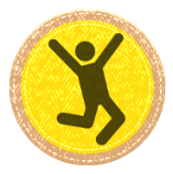INTRODUCTION: HOW TO BECOME A GOOD PEER TRAINER
SKILLS OF A TRAINER
Below are some of the main skills that a trainer should have, but the correct functioning of the training will not only depend on it, since there are many factors that will alter the proposed planning. If the trainer has the majority of these skills, it will be easier to create a good atmosphere in the classroom and efficient communication between the trainer and the learners.
 1. Effective oral communication
1. Effective oral communication
It is the competence to hear, understand and value emphatically information, ideas and opinions that other person communicates, being able to assertively feedback the communicative process.
Requirements:
- Verbal and non-verbal interaction
- Speaking capability
- Presenting
- Active listening
 2. Active listening
2. Active listening
Ability to listen not only to what the person is expressing directly, but also the feelings, ideas or thoughts that underlie what is being said.
Requirements:
- Understand communication from the point of view of the speaker.
- Learn to listen between the “lines”.
- Do not adopt a hostile or emotional attitude while listening.
 3. Decision making
3. Decision making
Capacity to choose among several alternatives, those that are more viable for the achievement of the objectives, based on an exhaustive analysis of the possible effects and risks as well as possibilities of implementation according to priority and in a timely manner.
Requirements:
- Define the problem.
- Establish or Enumerate all the criteria (constraints).
- Consider or Collect all the alternatives.
- Identify the best alternative.
 4. Energy
4. Energy
Ability to create and maintain an indicated activity rhythm. It shows control, endurance and the ability to work hard.
Requirements:
- Be always active.
- Do the tasks with dynamism.
- Show enthusiasm for new challenges.
 5. Enthusiasm
5. Enthusiasm
It is the energy and the disposition that one has to carry out a work, filled by a positivism and unique optimism, under the conviction and the necessary dynamism oriented towards the achievement of a particular objective.
Requirements:
- Speaks positively
- Ables to modify the environment.
- Likes to grow.
- Takes advantage of opportunities.
 6. Interpersonal communication
6. Interpersonal communication
Ability to generate and maintain an adequate flow of communication between the members of the group or organization, using the different channels that are required in each case and favour the establishment of mutually beneficial relationships.
Requirements:
- Manners
- Politeness
- Respectful and Friendly
- Kindness and Sociability
 7. Leadership
7. Leadership
Ability to lead people and make them contribute effectively and adequately to the achievement of objectives. Commit to the development of its collaborators, their evaluation and the utilization of their potential and individual
Requirements:
- Set goals, transmit them and perform adequate follow-up in this regard.
- Listens to others and is listened to.
- Motivates the group to achieve the objectives.
- Usually sought for advice
 8. Management capacity
8. Management capacity
Ability to manage tasks and processes in charge quickly and reliably; making use of the resources and dynamism necessary for the achievement of the objectives.
Requirements:
- Defines tasks in advance, avoiding unforeseen events.
- Plains resources.
- Gets the best out of your coworkers.
- It adapts quickly to changes that may arise.

